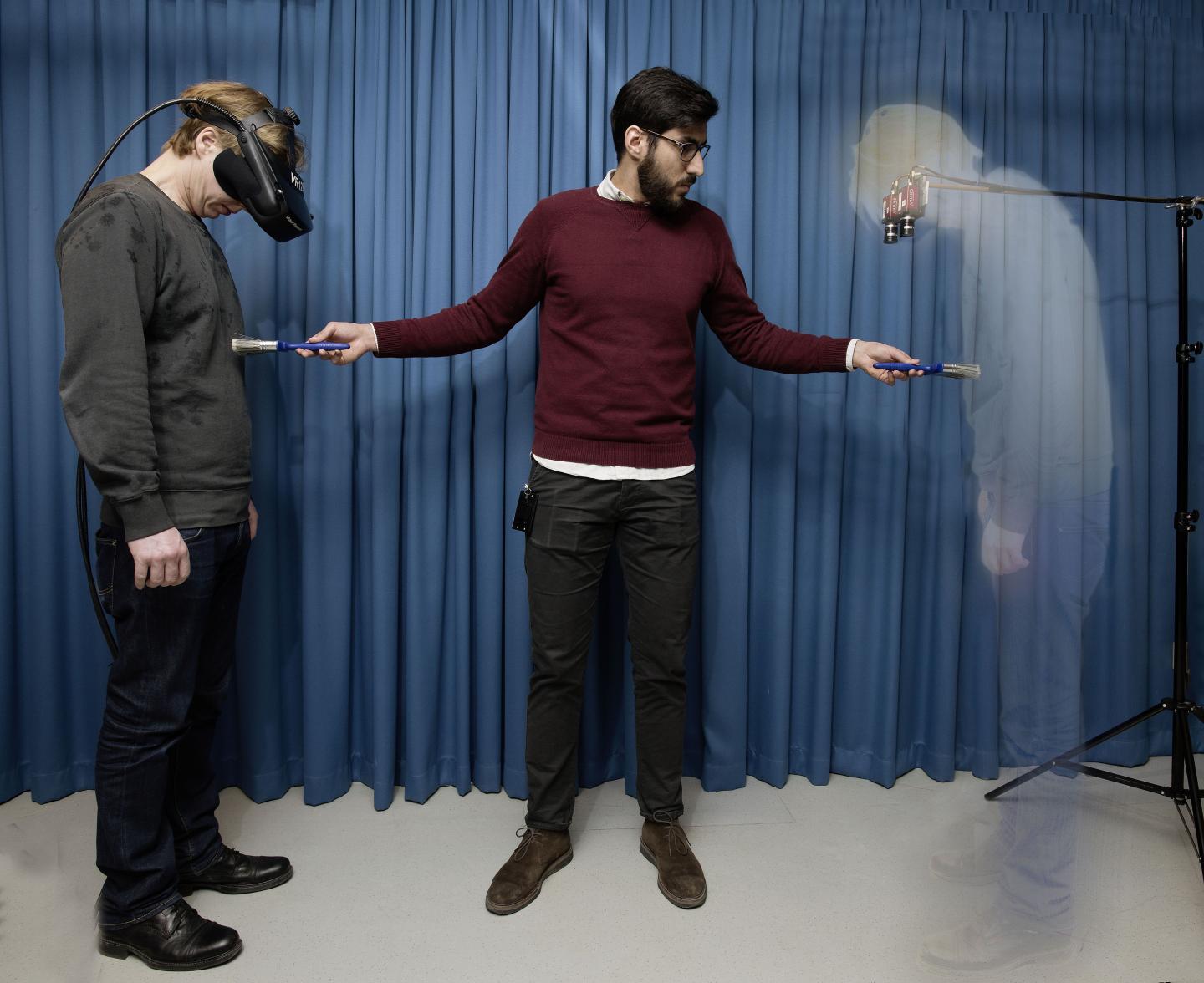We've long been fascinated by but it has been fictional. Now a team of researchers has created a perceptual illusion of having an invisible body. You won't just 'feel' invisible like no one notices you in a crowd, you can actually feel invisible.
The history of literature features many well-known narrations of invisibility and its effect on the human mind, such as the myth of Gyges' ring in Plato's dialogue The Republic and the science fiction novel The Invisible Man by H.G. Wells.
Recent advances in materials science have shown that invisibility cloaking real world objects might soon be possible in the visible light spectrum. How might invisibility affect our brain and body perception?

Ph.D. student Zakaryah Abdulkarim, M.D., shows how to create the illusion of invisibility in the lab. Credit: Staffan Larsson
Neuroscientists at Sweden's Karolinska Institutet describe a perceptual illusion of having an invisible body using a set of head-mounted displays. The participant is asked to look down at their body, where they see empty space. To evoke the feeling of having an invisible body, the scientist touches the participant's body in various locations with a large paintbrush while, with another paintbrush held in the other hand, exactly imitating the movements in mid-air in full view of the participant.
It's a more elaborate rubber hand illusion, but the sensation works.
"Within less than a minute, the majority of the participants started to transfer the sensation of touch to the portion of empty space where they saw the paintbrush move and experienced an invisible body in that position," says Arvid Guterstam, lead author of the paper. "We showed in a previous study that the same illusion can be created for a single hand. The present study demonstrates that the 'invisible hand illusion' can, surprisingly, be extended to an entire invisible body."
They created the illusion experience in 125 participants. To demonstrate that the illusion actually worked, the researchers would make a stabbing motion with a knife toward the empty space that represented the belly of the invisible body. The participants' sweat response to seeing the knife was elevated while experiencing the illusion but absent when the illusion was broken, which suggests that the brain interprets the threat in empty space as a threat directed toward one's own body. In another part of the study, the researchers examined whether the feeling of invisibility affects social anxiety by placing the participants in front of an audience of strangers.
"We found that their heart rate and self-reported stress level during the 'performance' was lower when they immediately prior had experienced the invisible body illusion compared to when they experienced having a physical body," says Guterstam. "These results are interesting because they show that the perceived physical quality of the body can change the way our brain processes social cues."
Citation: 'Illusory ownership of an invisible body reduces autonomic and subjective social anxiety responses', Arvid Guterstam, Zakaryah Abdulkarim&Henrik Ehrsson, Scientific Reports, online 23 April 2015, doi: 10.1038/srep09831.






Comments